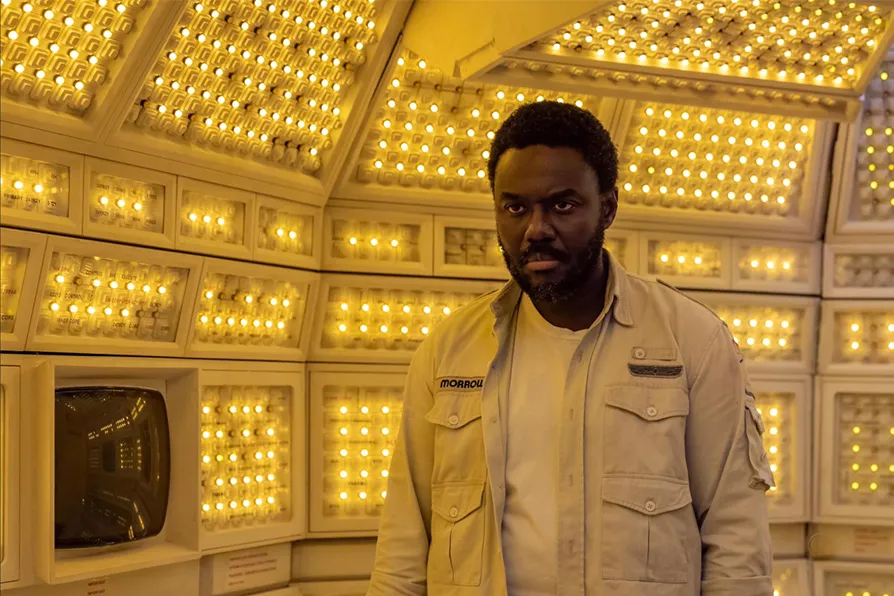New releases from Bill Callahan, The Delines, and Beck
ANGUS REID questions whether a human scriptwriter is behind the multiple plagiarisms of Disney’s much-lauded and vacuous extension of the Alien franchise

 QUEASILY FAMILIAR: Babou Ceesay in Alien: Earth (2025) [PIC: IMDB]
QUEASILY FAMILIAR: Babou Ceesay in Alien: Earth (2025) [PIC: IMDB]
Alien Earth
Disney+
★
JUST suppose you asked AI to put together a script for an eight episode extension of the Alien franchise; then what — given the fact that it has only existing material to draw from and cannot come up with anything new — would it come up with?
It is very significant that the supposed “author” of the series is also the director and producer. His official title is not “writer” but “show-runner” and given the bizarre structure of this series, it seems very likely that AI is at its core, and that choice is to blame for its nauseating mayonnaise of child fantasy, potted horror and robot narcissism.
To watch it is to be in the presence of an endless and incoherent sequence of visual and narrative quotation. In episode 1 we get a duplicate — more or less shot by shot — of the “crew waking up” scenes from the original, with characters who are photocopies of the original space truckers. But it goes past so fast that we don’t get involved. When the monster is unleashed there’s an unmistakeable sense of deja vu and no real horror.
The only survivor of the first 10 minutes is a cyborg — a cybernetically enhanced human. An adult who is part machine and whose blackness marks him in a racist way as a slave of the corporation.
In the parallel “Earth” narrative the human minds of terminally ill children is being planted into synthetic bodies as a Peter Pan game, an experiment with eternal life. And, of course, one story crashes into the other.
The oddity about this unfolding narrative is that all the character interest avoids actual unmodifed humans (these are just wayward billionaires and their lackies) to focus on the narcissistic dream of artificial intelligence itself. What, it wonders, would happen if I were super-human?
Meanwhile the alien rampages with an odd lack of consequence — it grins and drools but we never see the slashing, just the aftermath. It’s like a scuttling child-catcher, a comic black silhouette.
Alien Earth is unlike the rest of the series as it isn’t really horror at all. It can’t do suspense. Instead it does biological pornography, contenting itself with exquisitely realised sick details. So, where the original alien implanted itself in John Hurt’s body, in this revisitation we see an alien foetus planted in a naked human lung. It’s the same narrative, but recycled under a microscope.
What is Disney trying to achieve with this queasy horror-porn?
In the mix and also running the algorithm is the need for a fairy story — preferably British Victorian, of course — about kids. So we get an inside-out version of JM Barrie’s “Lost Boys” — children with invincible adult bodies minus adult sexuality. One of them, with only a knife, chops the invincible alien in two in hand-to-hand combat. So we have forgotten the grand metaphor of the first film — that humans are vulnerable to all manner of unknown pests — because AI, in its own fantasy, will always have the upper hand.
Three episodes have passed and there’s still five to come but the stakes aren’t high, the dice are loaded and clearly the red thread is the emerging maturity of the synthetic intelligence, a prospect as shallow and stupid as watching Mickey Mouse grow into Superman.
The acting is dreadful. The atmosphere is like a pantomime. The experience ressembles a binge-watch of not just Alien but also other body-horror and action flicks, all on fast forward. The algorithm has accelerated the plagiarism to the point where any sympathy you might feel is redundant.
Alien Earth is available on Disney+.









